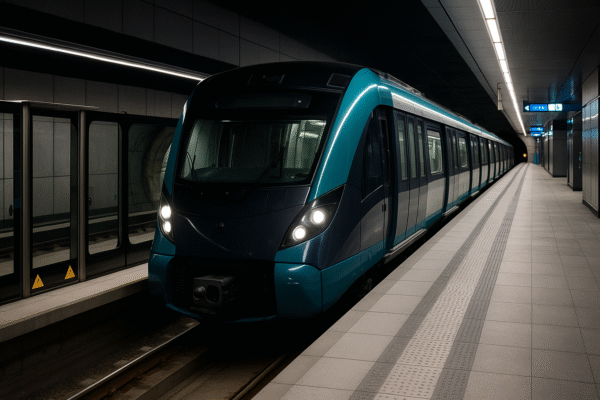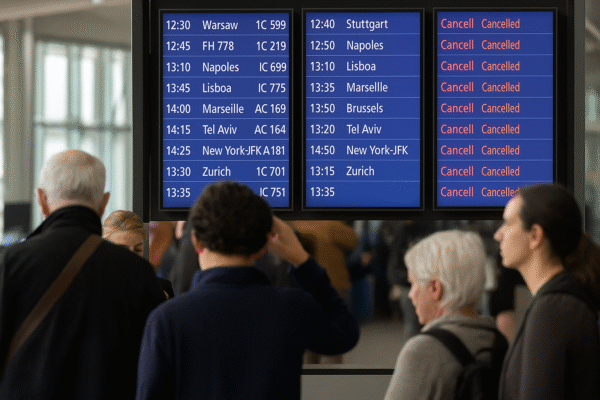Asiana Airlines Ends A380 Service to New York JFK Ahead of Schedule, Increases A350 Usage
SEOUL, SOUTH KOREA / NEW YORK, USA — July 6, 2025 — In a strategic shift tied to evolving fleet needs and its ongoing merger with Korean Air, Asiana Airlines will end its Airbus A380 service to New York’s John F. Kennedy International Airport (JFK) nearly a month earlier than originally scheduled. Aviation intelligence firm Cirium reports that the airline will suspend its A380 operations on the Seoul Incheon (ICN) to JFK route from September 4, 2025, instead of the initially planned October 1.
The decision marks a swift change in Asiana’s long-haul operations just months after the A380’s reintroduction to the U.S. route for the first time in six years. The carrier is now set to prioritize more frequent flights using the fuel-efficient Airbus A350-900, better aligned with post-pandemic travel demand and sustainability goals.
Strategic Shift in Fleet Planning
As part of its 2025 summer schedule, Asiana initially scheduled 91 A380 round-trip flights between Seoul and New York, offering more than 45,000 seats through the season. The airline complemented this with daily A350-900 services, providing passengers with two wide-body aircraft options during peak summer travel.
Under the updated schedule:
- Flight OZ224 (A380) departs Seoul ICN at 21:05, arriving at JFK at 23:00.
- Return flight OZ223 departs JFK at 01:30, arriving in Seoul at 06:10 the next day.
Once the A380 exits the route in early September, Asiana will increase frequency and optimize load factors using its A350-900, which offers 311 seats per flight and improved fuel economy for the 6,886-mile (11,082-kilometer) journey.
Passenger Experience & A380 Features
The Airbus A380, once the crown jewel of long-haul luxury, is being gradually phased out across several global carriers due to high operating costs. Asiana’s A380s are configured in a three-class layout, including 12 Business Suites, designed for enhanced privacy and comfort, alongside a large economy cabin.
Refitted in 2019, Asiana removed the first-class section from its A380 fleet, replacing it with premium Business Suites to increase operational efficiency and align with evolving business traveler preferences.
Passengers onboard have enjoyed:
- In-flight entertainment via personal screens
- Complimentary Korean and Western cuisine
- Checked baggage allowances
- In-flight calls, with seat-to-seat communication free and satellite calls priced at $7 per minute
Impact of Korean Air Merger on Asiana’s Fleet
The early retirement of A380 service to JFK signals a broader consolidation effort. All six of Asiana’s A380 aircraft are expected to be absorbed into Korean Air’s fleet as part of the long-anticipated merger between the two South Korean aviation giants.
The South Korean government approved the merger in early 2024, with full integration expected by late 2025. As the two airlines unify networks and resources, Korean Air is expected to reassess long-haul capacity, potentially reallocating or reconfiguring aircraft to ensure consistency in service standards and route economics.
Korean Air already operates 10 A380s, though many are expected to be retired or converted for other uses over the coming years. The integration may result in:
- Fewer A380 routes overall
- More sustainable, fuel-efficient aircraft like the A350 and Boeing 787
- Route optimization across transpacific and Europe-Asia sectors
Broader Trends in Long-Haul Aviation
Asiana’s move reflects a global trend among airlines to phase out older, four-engine aircraft like the A380 in favor of next-generation twin-engine models. The A350-900 offers lower emissions, reduced noise levels, and improved economics per seat, making it ideal for transpacific routes where both efficiency and capacity are crucial.
Despite this trend, the A380 still operates on select high-demand routes in Asiana’s network, including:
- Los Angeles (LAX)
- Frankfurt
- Tokyo
- Taipei
- Bangkok
However, analysts expect these routes will also gradually transition to more sustainable aircraft over the next 18 months, especially once the Korean Air merger is fully operational.
Tourism & Travel Implications for North American Passengers
For North American travelers, especially those flying from JFK, the transition to A350 service won’t result in significant schedule disruptions. In fact, passengers may benefit from:
- More flexible departure times
- Improved fuel efficiency and lower carbon footprint
- Modern cabin design with better humidity and air pressure control
The route between New York and Seoul remains one of the busiest for transpacific leisure and business travelers, with demand projected to rise through 2026 due to increased K-culture tourism, business ties, and medical travel.
For more travel news like this, keep reading Global Travel Wire















